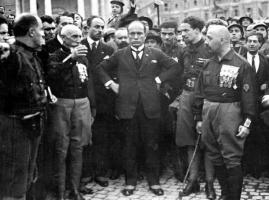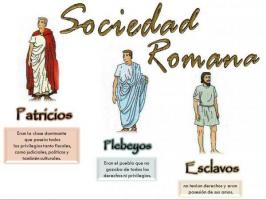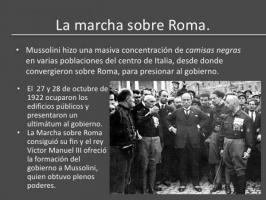The 6 main TYPES of HUMANISM
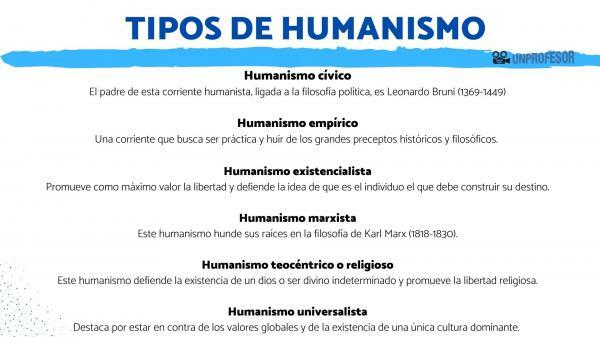
In this lesson from a Teacher we are going to talk about different types of humanism that have developed throughout history. Humanism is a philosophical current that developed at the beginning of the XV century in Italy and from the hand of authors like FrancescoPetrarca (1304-1379), Giovanni Boccacio (1313-1375) and Dante Alighieri (1265-1321), who through their works reformulated the way of seeing the world.
Thus, this current has laid the foundations of our current thinking and has given rise to various types of humanism, among which the following stand out: original humanism or Renaissance, civic humanism, empirical humanism, existentialist humanism, Marxist humanism, universalist humanism, and theocentric humanism or religious. If you want to know more about the types of humanism, keep reading this lesson.
Humanism It arose in the city-states of the north and center of Italy in the late 14th and early 15th centuries. From there, quickly (15th-16th centuries) spread throughout Europe and it was configured as the predominant thought, radically breaking with the medieval current prevailing until now.
East humanism was characterized by:
- To develop in a bourgeois society in Italian cities, such as Venice, Florence or Rome.
- Develop reason and critical thinking against medieval religious and dogmatic thinking.
- Its birth and expansion was in parallel with the development of universities and the birth of the printing press.
- It breaks with theocentric thinking (God the center) and imposes the anthropocentric model. Thus, the human being is the center of the universe and the most perfect creation of God and nature.
- Scientific and philosopher development versus theology.
- The works of Renaissance authors began to be written in vernacular languages, being the most accessible knowledge for the majority of the population.
- There is a rediscovery of the classical works and the philosophical / aesthetic values of ancient Greece and Rome are promoted.
Likewise, in this current they stood out three authors originating: Francesco Petrarch (1304-1379) with his work The Songbook, Giovanni Boccacio (1313-1375) with his work Decameron and Dante Alighieri (1265-1321) with his work The Divine Comedy.
Shortly after, others will stand out, such as: Lorenzo Valla (1407-1457), Giovanni Pico della Mirandola (1463-1494), Erasmus of Rotterdam (1466-1536), Nicolás Machiavelli (1469-1527), Tomás Moro (1478-1535) Juan Luis Vives ( 1492-1540) or Michael de Montaigne (1532-1591)
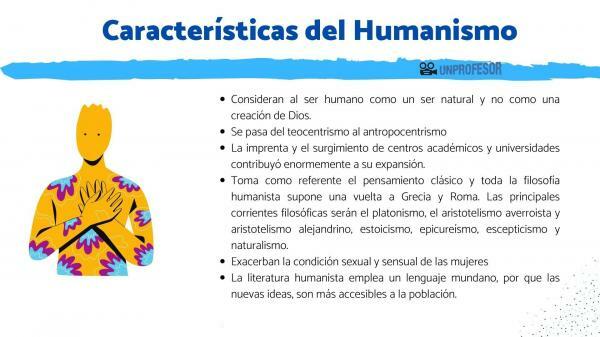
Throughout the history of philosophy, other types of humanism have emerged as ramifications of original humanism. Among all, the following stand out:
Civic humanism
The father of this humanist current, linked to political philosophy, isLeonardo Bruni(1369-1449) with his work History of the Florentine people (1473). In this one, the Italian tells us about ANDPopular state or the perfect government: One that leaves aside ecclesiastical / medieval institutions and in which citizen participation prevails.
During the 20th and 21st centuries, philosophers Jacques maritain (1882-1973) and Alejandro Llano Cifuentes (1943) will develop Bruni's original thesis. Establishing that the democracy It is the perfect government model, which is aimed at the social welfare or common good and which is characterized by popular participation, freedom of worship and the promotion of rights humans.
Empirical humanism
This humanism is characterized by being a current that seeks to be practical and flee from the great historical and philosophical precepts. That is to say, gives more importance to actions than to theoretical conceptss and abstract ideas.
Likewise, it promotes the individual's ability to develop his own life and destiny, rejects violence, defends minority ways of life and freedom of expression and beliefs.
Existential humanism
This version of humanism promotes maximum value freedom and defends the idea that it is the individual who must build his destiny and his life through self-determination. Therefore, it rejects external intervention in the ideology and symbolic system of the individual.
In this way, existentialist humanism insists on rejecting all absolute values and totalitarianisms. One of the maximum representatives of this current is the philosopher Jean-Paul Sartre (1905-1980).
Marxist humanism
This humanism has its roots in the philosophy of Karl Marx (1818-1830) and began to develop from the World War II. This is characterized by radically rejecting the concept of the individual and individualism, contrary to what most humanisms promote, and promotes the idea that The human being is a social being, that is part of a group, that has a group identity, that develops through the group (its well-being depends of the group) and that depends on the historical and social forces (changes in the individual are subject to the action group).
Theocentric or religious humanism
Of all the types of humanism, perhaps this is the most curious, since, in principle, it would be at the opposite pole of what we conceive as humanism. This humanism defends the existence of a god or be divine indeterminate and promotes religious freedom.
Universalist humanism
This humanist current, highly influenced by the postmodern philosophy, stands out for being against global values (globalization) and the existence of a single dominant culture. For the cons, promotes social and cultural particularities, inclusive societies and respect for different cultures.
"A well-ordered humanism does not start with itself, but places the world before life, life before man, respect for others before self-love." Claude Lévi Strauss.
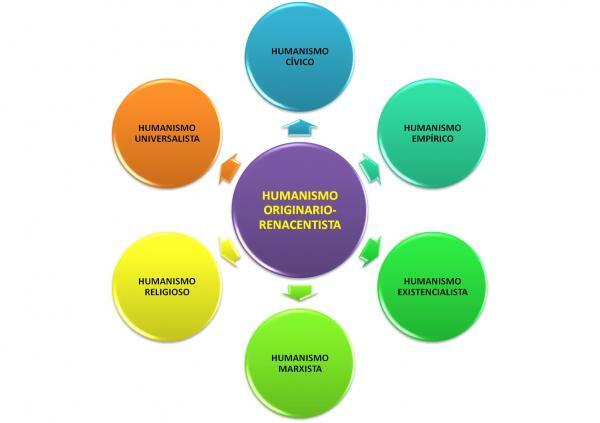
Reale, G and Antirseri, D. History of philosophy II. From Humanism to Kant. Ed. Herder. 2010

